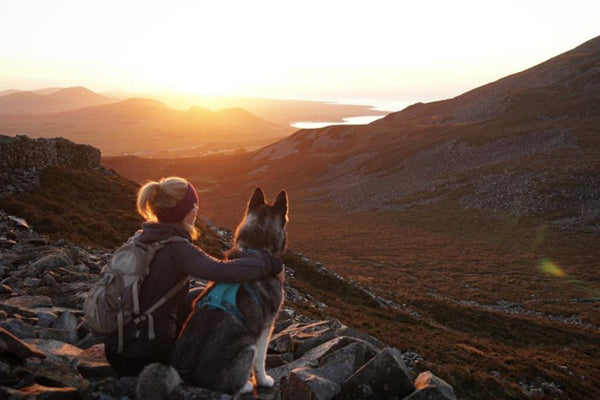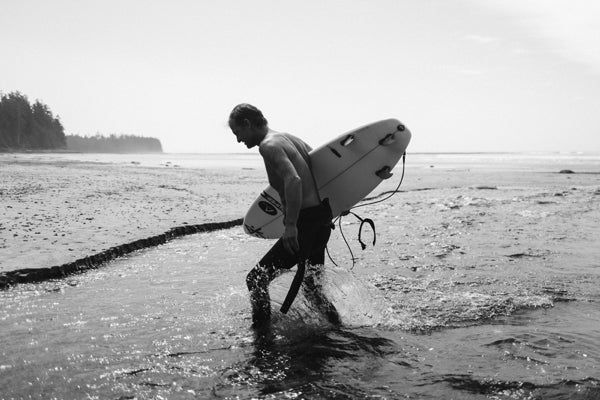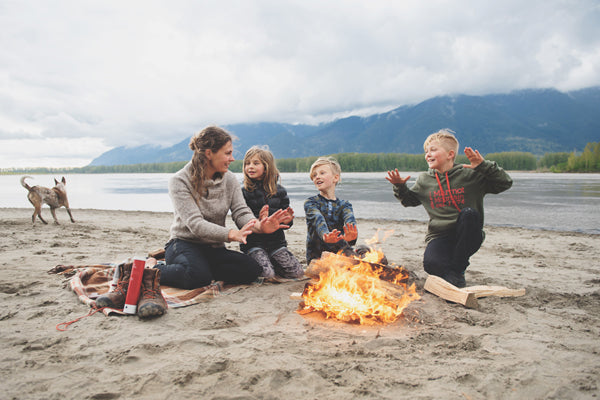A BLOG SERIES BY EXPERT SURVIVALIST MEGAN HINE

Resilience, which is our ability to adapt to and bounce back from the events we encounter or challenges we overcome, is hardwired into our makeup as humans. Resilience links our minds, bodies, and spirits. Our bodies are resilient: A pint of blood contains about 3.5 trillion red blood cells, which you sacrifice when you donate at the blood bank. Your body acts swiftly to replace them. A large portion of a vital organ can be lost — such as part of your stomach — but you can still live a relatively normal life.
When I wrote my book, ‘Mind of a Survivor,’ I was fascinated and captivated by the mental resilience that survivalists exhibit. I kept returning to the question, “From an emotional standpoint, in survival scenarios, why do some people survive while others do not?”

Over the years, I have dropped many people into engineered survival scenarios—with nothing but the clothes they wore, and maybe a machete or knife. Although each person faced the same scenario, some would keep going no matter what. They would, at times, appear to thrive and flourish in these difficult scenarios. Others would sit down and give up, devoid of motivation and hope. What was the difference? Was it something within them, such as a special talent they had? Or was it a learned behavior, which could be taught and then shared with others?
After studying them, I realized the successful survivalists possessed two factors that determined how they were able to overcome challenging scenarios—mastery of the environment, and a supportive network. I will explore both of these concepts, and I hope you can glean powerful lessons from these experiences that you can apply in your own adventures.

Master your environment:
Imagine if I plucked you from whatever you are doing right now, in the clothing you are currently wearing, bundled you blindfolded into a helicopter, and dropped you alone, deep into a jungle. It’s wet, full of biting insects, full of the noises of cicadas and rustling all around you, and you don’t know where you are. You don’t know how far from civilization you are, you don’t know what dangers lurk in the shadows of the tangled undergrowth that surrounds you, and you have no idea if you will ever return home.
To most, this would be a scary environment, made tougher by the lack of your VSSL tube and other essential survival gear. For many, this would be an incredibly overwhelming, seemingly insurmountable scenario to be dropped into. So how do you master an environment when it’s completely alien?
Once you have established there is no immediate threat to your life, the first step is acceptance. Accepting this scenario calms our fear response, which has been triggered in the primal animal instinct within us. That frees up the human and logical part of our mind to focus on how to calmly navigate the situation. We try to become aware of our surroundings. Acceptance isn’t about liking a scenario. While it may seem tempting to be plucked out of quarantine and dropped into an adventure, reality intrudes: A survival scenario with no end in sight is a daunting and distressing prospect. Accepting you are now in the jungle will calm the fear-based animal instinct inside. This enables you to scan your surroundings for signs of other humans, or to make logical, strategic decisions such as following a water course downstream.

The next step is to establish a routine. Lacking a purpose is fatally soul-crushing in this overwhelming scenario. It would be so easy to give up hope, curl up, and die. When the body becomes weak from exhaustion and malnutrition, routine allows the mind to overcome fatigue by tapping into your purpose. Reconnecting with that sense of purpose helps you re-focus on the priorities of surviving, which include self-care measures like personal hygiene. That may seem trivial, but it actually has the potential to kill if you if you neglect it in the jungle. Foot rot is not only unpleasant—in a survival scenario it can threaten your life. Routine includes doing the small things that can shift your outlook for an entire day. This list of activities won’t burn up stores of energy, but it will improve your mental acuity. It includes collecting and purifying water, checking traps you’ve set, checking your body for parasites and signs of infection, putting out improvised fishing lines, or checking the direction of the sun at different intervals throughout the day.
Ultimately, mastery of your environment is about retaining or establishing a sense of control over the aspects you can control. Don’t dwell on those that you can’t, because you can’t afford such distractions. We can take these hard-earned lessons from the jungle and apply them to our current circumstance grappling with quarantines. The widespread lock downs are effective at combating the spread of COVID-19. We can’t control the fact that we are in lock down or that the virus exists, but we can retain control over our lives and how we conduct ourselves each day. This starts with our daily routines, which sparks that flame of purpose and sets the goal posts we work toward accomplishing each day.

Supportive network:
The second thing successful survivors possessed was a strong support network backing them. Even when they were physically separated from this network, their sense of support remained strong as they fought to endure and triumph over the survival scenarios. As I observed people overcoming some of the hardest challenges they will ever face, I learned a tough, painful lesson. I saw that people who came from backgrounds with unsupportive and unreceptive family or work environments were more likely to give up more quickly. Unsupportive environments tended to discourage open communication, which encouraged avoidance and the suppression of emotions. That can create a lack of self-confidence while reinforcing self-doubt and negative self-talk.
However, I saw something truly inspiring come out of this. I saw that while we don’t necessarily have control over our social networks or upbringing, we can develop a stronger sense of mastery and control over our lives. Our experiences overcoming adversity in outdoors survival scenarios can help this process. Our backcountry adventures can play a huge, positive role in nurturing and developing our personal resilience.
--

About Megan Hine
Megan Hine is a world-renowned survival consultant, celebrity expedition leader, adventure catalyst, author, and VSSL Voyager! Her vast wealth of experience and knowledge, gained from leading hundreds of expeditions and consulting for TV survival shows across the globe has given her an incredibly unique perspective into the "Mind of a Survivor".
The demand for Megan's insight into human behaviour led to the release of a monthly subscription series for exclusive content on this topic. She not only takes a deeper, more personal dive into her experiences and how they've shaped her perspective, but also (and more importantly) how they can shape you!
Sign up for Megan's course here:
To Follow Megan @megan_hine




Leave a comment
This site is protected by hCaptcha and the hCaptcha Privacy Policy and Terms of Service apply.